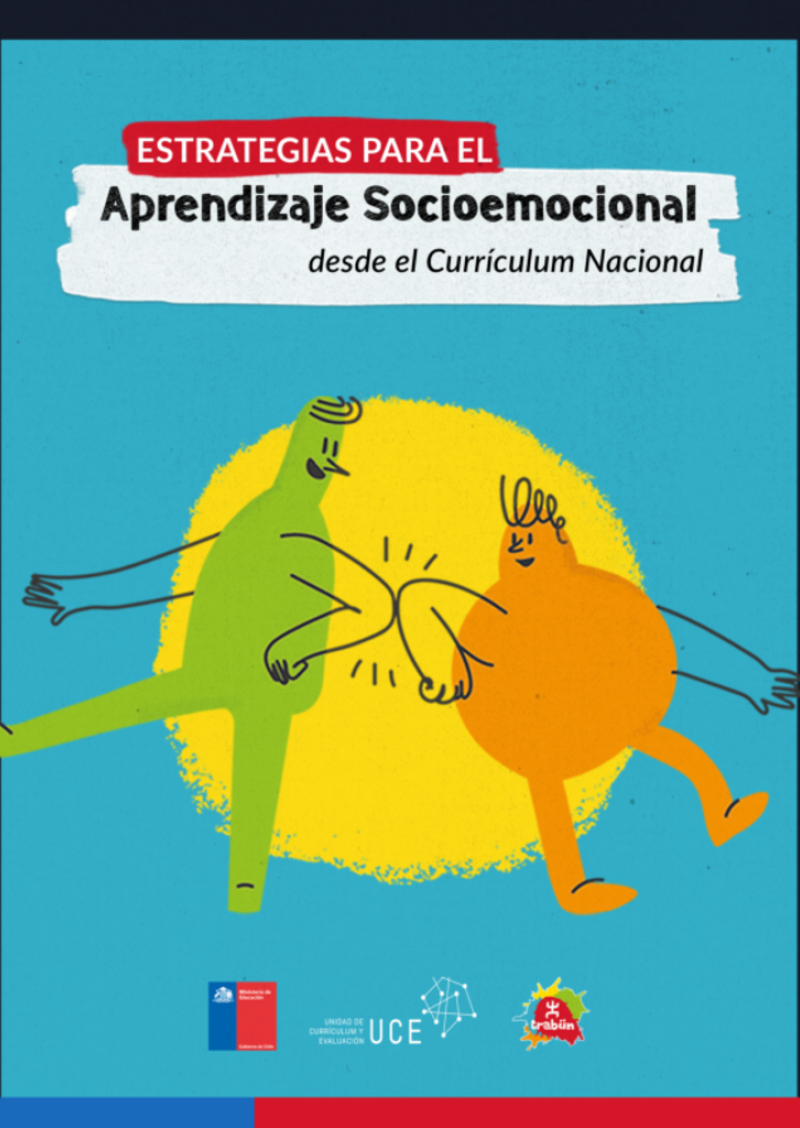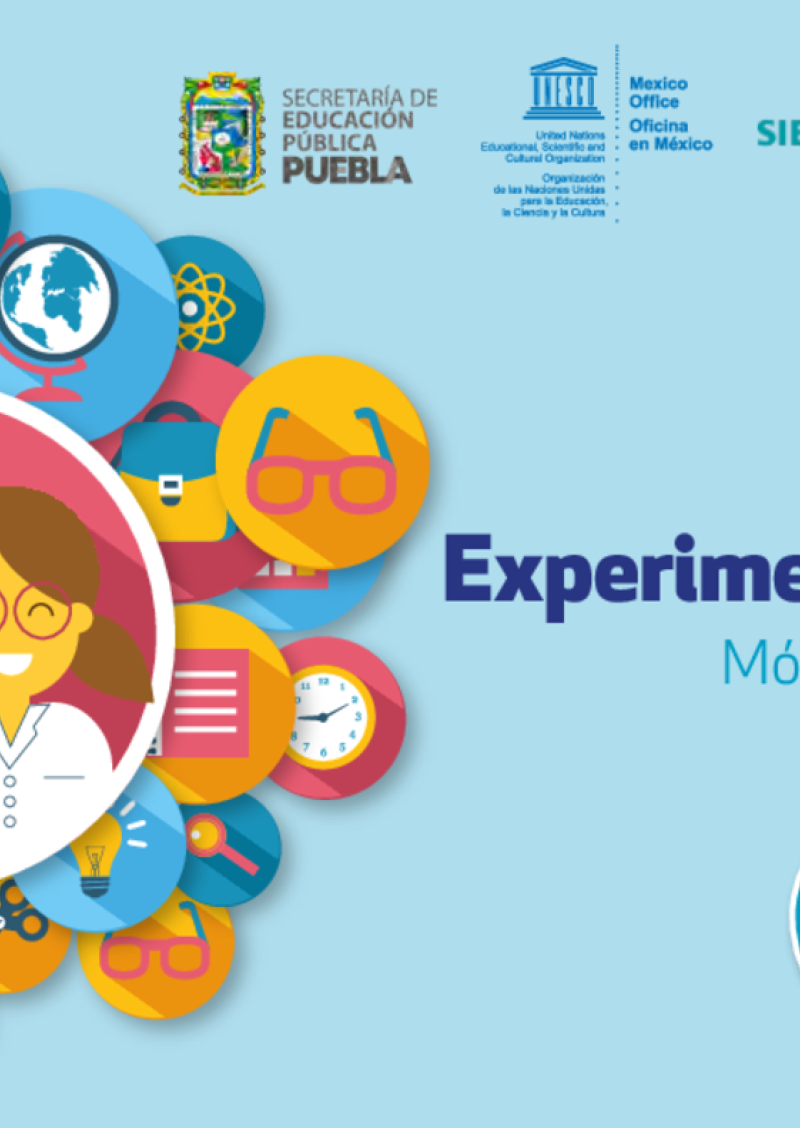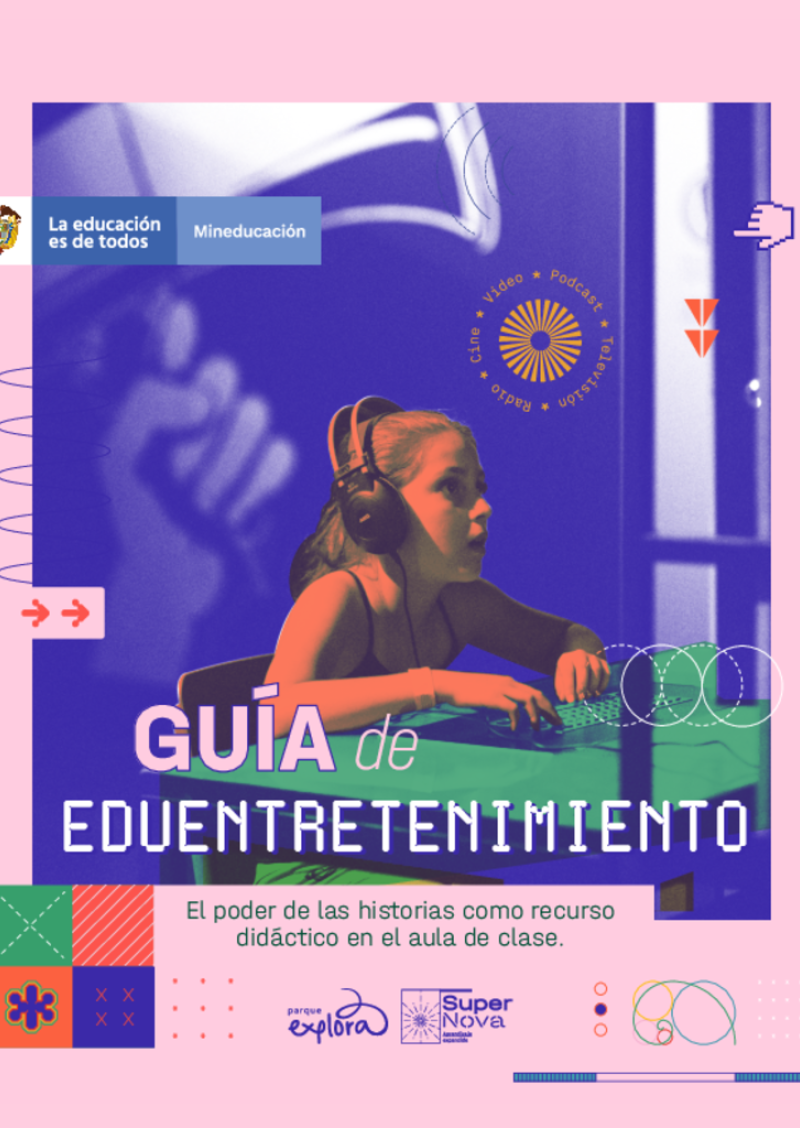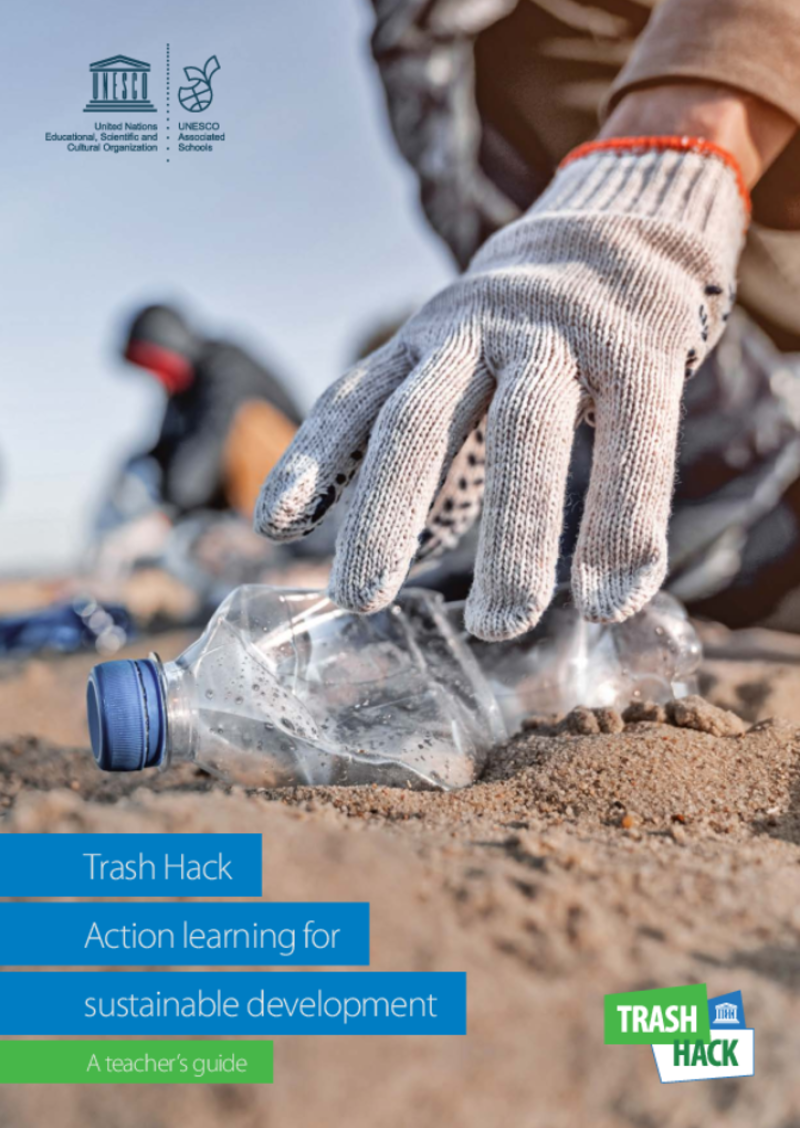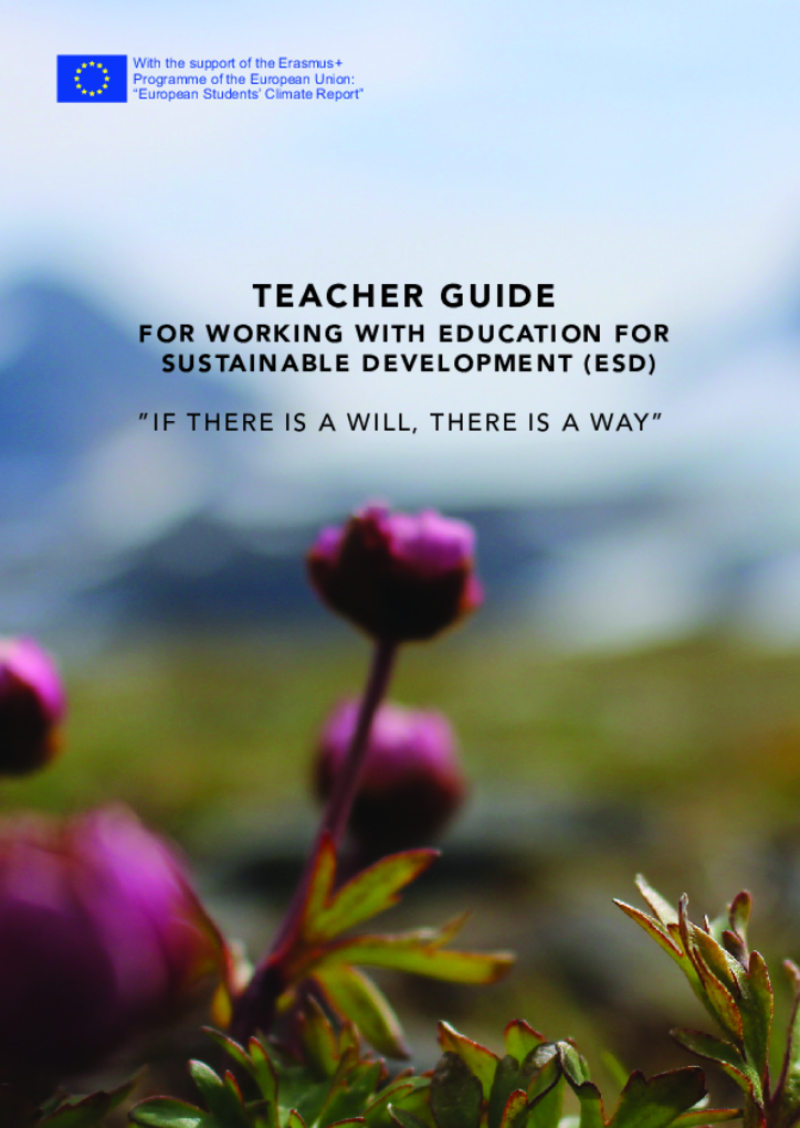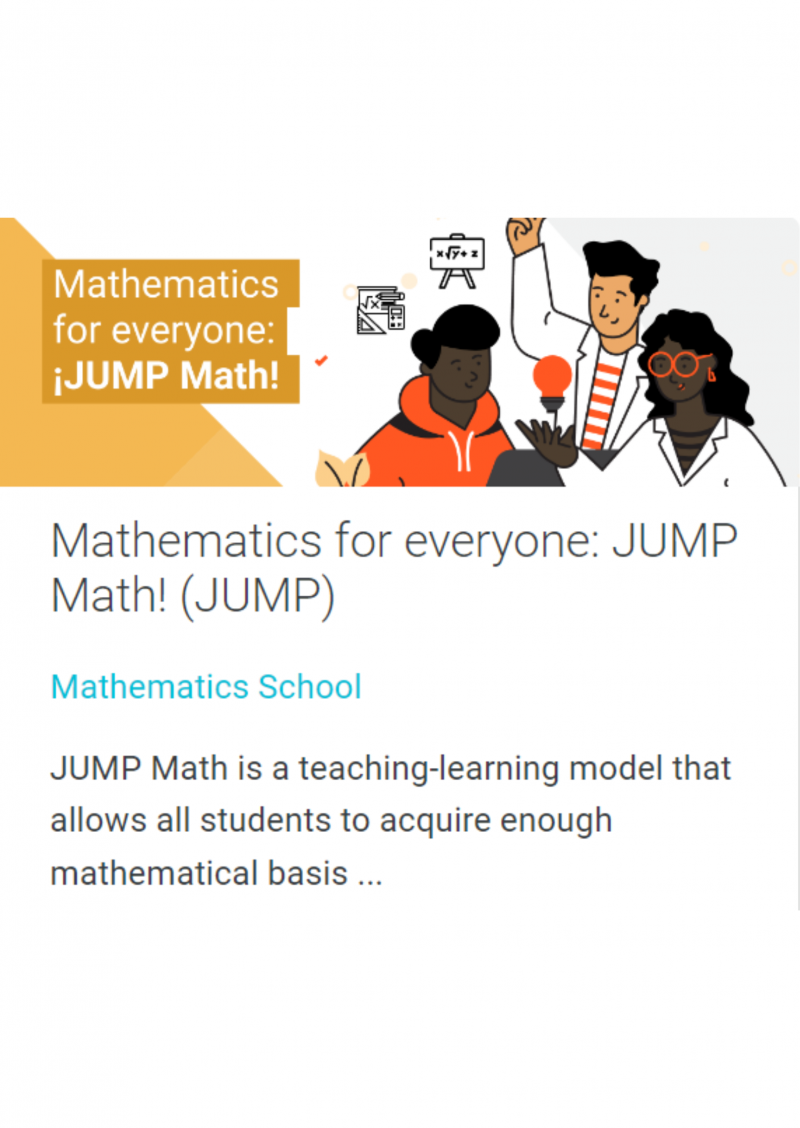Centro de Recursos para Docentes
Visualizar 1 - 20 de 23
Differentiated Instruction in Displacement Contexts. Workshops Facilitation Guide
In this guide, there are prompts to support exploration of the content and application to the local context. There are also tips to support educators as they make space and time for professional learning within their busy and, often, stressful lives. Finally, this guide offers some advice regarding online, and/or other technological aspects, of this training.
The Quality Holistic Learning Project (QHL), of which this face-to-face workshop is one element, aims to prepare educators to deliver high-quality lessons which support holistic learning for children and youths of diverse backgrounds (refugee, migrant, and/or citizen) within host country, displacement, and crisis contexts. They define quality holistic learning as that which attends to:
- academic, cognitive, and identity development,
- social and emotional learning, and
- mental/psychosocial and physical well-being and which delivers: positive schooling experiences, ● feelings of belonging and safety, growth and development, and equitable outcomes for all learners.
STEAM +género - Una propuesta para fortalecer la educación inicial con equidad
Esta guía, creada en colaboración entre el Ministerio de Educación de Colombia y la Fundación Siemens Stiftung, con apoyo de la OEA, busca integrar el enfoque STEAM con perspectiva de género en la práctica docente. Centrada en los sistemas educativos de Colombia y Chile, promueve la equidad de género desde la primera infancia, fomentando la participación de niñas y niños en ciencia y tecnología. A través de experiencias educativas y políticas, se pretende reducir estereotipos de género y promover una educación inclusiva y de calidad.
Estrategias para el Aprendizaje Socioemocional desde el Currículum Nacional
Este manual ofrece a los docentes el contexto necesario para implementar el aprendizaje socioemocional en el aula. Proporciona una base teórica y se alinea con el currículum nacional chileno. Incluye ejemplos de actividades que pueden desarrollarse en diversas materias y espacios de la vida escolar, abarcando desde la educación primaria hasta la secundaria. El objetivo es facilitar la integración del aprendizaje socioemocional en las prácticas educativas diarias, promoviendo un ambiente escolar más inclusivo y comprensivo.
Experimento 3+ módulo: Salud - Guía de trabajo para docentes de preescolar
Esta guía, elaborada en el marco de un proyecto con la Oficina de la UNESCO en México para desarrollar la enseñanza de la ciencia a nivel preescolar, propone actividades y experiencias científicas para realizar en el aula. Incluye medidas de seguridad que se deben observar y demás instrucciones necesarias. Este módulo se centra en la temática de la salud (conocimiento del cuerpo humano, etc...).
Experimento 3+ módulo: Medio Ambiente - Guía de trabajo para docentes de preescolar
Esta guía, elaborada en el marco de un proyecto con la Oficina de la UNESCO en México para desarrollar la enseñanza de la ciencia a nivel preescolar, propone actividades y experiencias científicas para realizar en el aula. Incluye medidas de seguridad que se deben observar y demás instrucciones necesarias. Este módulo se centra en la temática del medio ambiente (ciclo del agua, contaminación, etc.…).
Experimento 3+ módulo: Energía - Guía de trabajo para docentes de preescolar
Esta guía, elaborada en el marco de un proyecto con la Oficina de la UNESCO en México para desarrollar la enseñanza de la ciencia a nivel preescolar, propone actividades y experiencias científicas para realizar en el aula. Incluye medidas de seguridad que se deben observar y demás instrucciones necesarias. Este módulo se centra en la temática de la energía (producción de energía, objetos conductores etc.…).
Guía de eduentretenimiento – El poder de las historias como recurso didáctico en el aula de clase
El eduentretenimiento es una metodología de comunicación definida por la UNESCO que se basa en narraciones como medio de transmisión del conocimiento. El objetivo es cautivar la atención de la audiencia para generar empatía y emociones, reconocidas como marcadores de aprendizaje. Se trata de una guía para el docente sobre cómo movilizar este tipo de fuente con sus alumnos en el aula o en otros contextos. Contiene también una diversidad de recursos con enfoque en áreas STEM (ciencia, tecnología, ingeniería, matemáticas).
Play & resilience: a toolkit for teachers, caregivers, and other stakeholders
Play is an easy, natural and universal practice that builds resilience. Play comes naturally to all children- and is a seemingly simple and light-hearted phenomenon. The power of play as a pathway to building resilience needs to be leveraged to provide children with the opportunity to further explore play in their home and school environments.
This toolkit is therefore premised on the objectives to build the capacity of various stakeholders such as caregivers/teachers, school managers, curriculum planners and policy makers who are key actors in the process of growth and development of children. It is also aimed at equipping these stakeholders with the knowledge and pedagogical skills to translate research, policy and curriculum to practical knowledge and activities for children in the school environment. The toolkit offers directions for facilitators who will be working with caregivers/teachers using the materials and resources provided and other relevant materials available in an environment where it will be used.
A Teacher's Guide for Arts, Music and Drama in Africa
Art, music and drama have had a pivotal role in the livelihood of human beings. This is clear by the wealth of literature, architecture, fine art, theater and music that define human past, present and future. The inherent creative ability and a yearning to express ourselves is what gives value to art, music and drama as companion components in human evolution.
This teacher's guide covers art, music, dance, drama, experiential learning, community engagement, and how to integrate these aspects into curriculum. Additionally, this document provides lesson plans for primary school students in these subject areas.
Boîte à outils sur la politique européenne de protection de la nature
Cette boîte à outils sur la protection de la nature aide les élèves à comprendre l'importance de la biodiversité et les menaces pesant sur la nature en Europe. Elle aborde les actions de l'UE pour protéger les écosystèmes et encourage les élèves à s'impliquer. Organisée en quatre modules, elle propose des activités interactives qui favorisent la réflexion, la collaboration, et la sensibilisation à la nature. Les élèves sont invités à explorer la nature, comprendre les enjeux de conservation, et développer des compétences pour contribuer à un monde plus durable. Des ressources complémentaires sont également fournies.
Des concepts essentiels pour l'éducation au développement durable
Cette formation de 60 minutes aide les enseignants à comprendre des concepts essentiels de l'Éducation au Développement Durable (EDD). Elle inclut une analyse critique de ces notions pour soutenir des actions éducatives en EDD. Les participants découvrent aussi des ressources pour approfondir ces sujets et sont invités à explorer d'autres concepts clés liés aux enjeux environnementaux, renforçant ainsi leurs connaissances et pratiques pédagogiques. Trois dates sont proposées en 2025 : le 7 janvier ; le 27 mars et le 19 mai. L'inscription est ouverte à tous et à toutes.
Dossier pédagogique - Objectifs de développement durable
Dans cette ressource on retrouve une analyse des programmes scolaires français, intégrant les Objectifs de Développement Durable (ODD). Elle propose des séquences pédagogiques pour différents niveaux (fin primaire, début secondaire) afin d’aborder ces enjeux en classe. Le sujet est contextualisé et expliqué de manière détaillée pour aider les enseignants à mieux comprendre les enjeux des ODD et à les intégrer efficacement dans leur enseignement. Ces outils visent à sensibiliser les élèves aux défis globaux tout en respectant les exigences éducatives.
Trash hack action learning for sustainable development: a teacher's guide
This short guide provides teachers with action-based approaches to address waste and trash management for sustainable development. It contains infographics and factsheets, inspiring initiatives taken by youth all around the world and activities that can be implemented in class or outside, over one day or several class sessions.
Media and information literate citizens: think critically, click wisely!
This pioneering curriculum presents a comprehensive competency framework of media and information literacy (MIL) and offers educators and learners structured pedagogical suggestions. It features various detailed modules covering the range of competencies needed to navigate today's communications ecosystem. This resource links media and information literacy to emerging issues, such as artificial intelligence, digital citizenship, education, education for sustainable development, cultural literacy, and the exponential rise in misinformation and disinformation. With effective use of this media and information literacy curriculum, everyone can become media and information literate as well as peer-educators of media and information literacy.
This UNESCO model MIL Curriculum and Competency Framework for Educators and Learners is intended to provide education systems in developed and developing countries with a framework to construct a programme enabling educators and learners to be media and information literate. UNESCO also envisions that educators will review the framework and take up the challenge of participating in the collective process of shaping and enriching the curriculum as a living document. The first edition and this second edition of the MIL curriculum have benefited from several series of collaborative and intercultural expert debates and recommendations. The curriculum focuses on required core competencies and skills which can be seamlessly integrated into the existing education system without putting too much of a strain on overloaded education curricula.
The target groups for the curriculum are essentially educators and learners. Educators and learners are understood in the broadest sense of the terms to include teachers at the secondary and primarily tertiary levels, persons involved in training or learning on all forms in NGOs, CSO, community centers, the media, libraries, online or offline. Given that the curriculum was developed with adaptation in mind, it can be used by various stakeholders interested in the field of MIL. Users may need to adapt the content to make it more relevant or accessible to specific target groups. The curriculum is also relevant to government officials and ministries, and other social and international development organizations.
Teacher Guide for Working with Education for Sustainable Development (ESD)
The purpose of this teacher guide is to inspire teachers who want to work with climate change and sustainable development with their students. In this guide, you will find examples of teaching activities and teacher reflections on these activities. The activities described should be seen as inspiration. They could be adjusted according to a specific teaching context as preferred, thus aligned with the same objectives and perceived outcomes. The EU-project in which the activities were developed, was carried out with upper secondary students (aged 16-19). With smaller changes by the teachers, younger students can also work with the suggested activities. Beyond the goal of learning about climate change and sustainable development, the activities enable students to practice their critical thinking, and develop their communication and presentation skills.
ETF READY model
The European Training Foundation's READY model (Reference model for Educators' Activities and Development in the 21st century) offers a structured way to identify the professional practices and development needs of the 21st century educators.
Reset earth teaching toolkits
This toolkit provides teachers with ideas, activities, games and discussions to engage students on the issues of the ozone layer. It includes comprehensive lesson plans for the age ranges of 7-12 and 13-18 and a simulation-style game, all accessible through the education portal of the Apollo's Edition of the Reset Earth campaign.
¡JUMP Math! Matemáticas al alcance de todos
El objetivo de esta formación es mejorar la preparación del profesorado de primaria en el área matemática inspirándose en la filosofía y metodología de JUMP Math, un modelo de enseñanza-aprendizaje que permite que todos los alumnos adquieran la base matemática suficiente para desenvolverse con confianza ante retos vitales y profesionales.
Para acceder al curso es necesario registrarse (gratuitamente) en la plataforma de ProFuturo.


